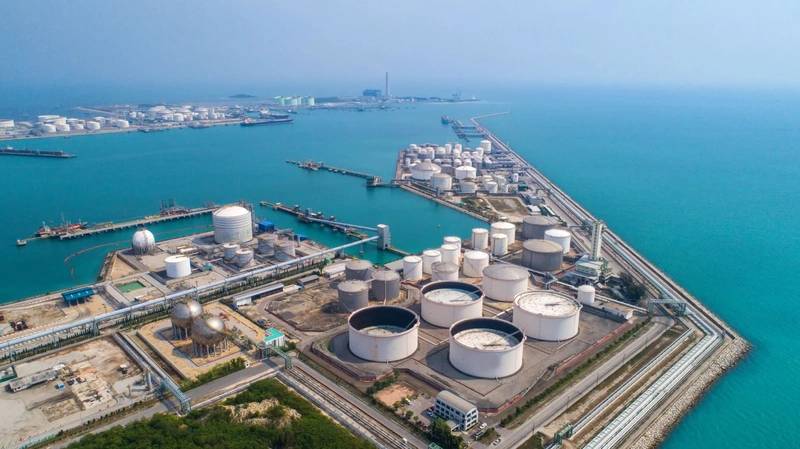Shell to Shut Down Philippine Refinery and Turn It into Import Terminal
The Philippine unit of Royal Dutch Shell said on Tuesday it will permanently shut one of the country's two oil refineries, blaming a pandemic-led slump in margins, with other regional closures likely to follow, according to analysts.
Pilipinas Shell Petroleum Corp said its 110,000-barrel-per-day Tabangao facility in Batangas province, which began operations in 1962, was no longer economically viable and would be turned into an import terminal.

Singapore's complex refining margin, the bellwether in measuring profitability at Asian refineries, has been mostly negative since March prompting many refiners to cut output or temporarily shutter operations.
"We definitely see the possibility of more closures in Asia over the next 6-12 months," said Mia Geng, consultant at FGE, adding that refineries in Japan, Australia and New Zealand could be likely candidates for closure.
"Given the uncertainties in demand and our subdued margin outlook, it would be challenging for those less complex and efficient refineries to continue running."
The permanent closure of Tabangao comes after both of the Philippines' refineries halted operations as coronavirus lockdowns pummelled oil demand.
"Due to the impact of the COVID-19 pandemic on the global, regional and local economies, and the oil supply-demand imbalance in the region, it is no longer economically viable for us to run the refinery," Pilipinas Shell President and Chief Executive Officer Cesar Romero said in a statement.
The other local refinery, Petron Corp's 180,000-bpd facility in Bataan province, has been on a scheduled turnaround since May for maintenance.
Energy Secretary Alfonso Cusi sought to allay concern over domestic fuel supply saying Pilipinas Shell is expected to fill its market share through imports of refined products.
But a Singapore-based gasoil trader said that imports may not happen anytime soon.
"I think they will import a bit more (gasoil) now. But demand is substantially disrupted due to the reoccurring COVID-19 situation."
Wood Mackenzie research director Sushant Gupta said in a note the challenging environment would put pressure on weaker Asian refineries, particularly ones in mature markets, or with little or no integration with petrochemicals.
"We could see closures becoming a reality in many markets," he said.
Pilipinas Shell booked a net loss of 1.2 billion pesos ($24.55 million) in the second quarter, narrower than its January-March net loss of 5.5 billion pesos. Its shares fell as much as 6.9% to 16.30 pesos, a one-year low.
(Reporting by Enrico Dela Cruz; additional reporting by Florence Tan, Seng Li Peng, Shu Zhang and Koustav Samantha in Singapore; Editing by Ed Davies and Richard Pullin)
